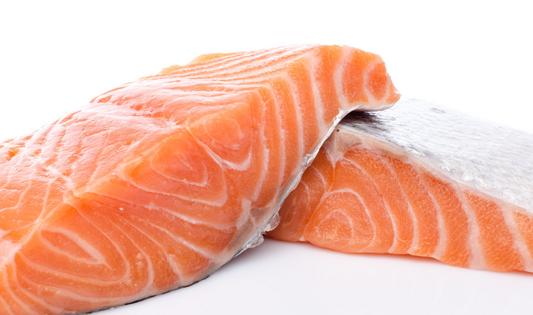Environmental Nutrition: B vitamins on the brain
Cognitive function -- including memory, mental speed and problem solving ability -- declines gradually over the life span in most people. Although you can't completely prevent this, B vitamins, particularly folate and vitamins B12 and B6, play specific roles in keeping your mind sharp. EN takes a closer look at how these vitamins may help your brain function at its best.
Roles of B Vitamins
Folate and vitamins B6 and B12 help keep levels of homocysteine, an amino acid, in a healthy range. High levels of homocysteine in the blood have been linked with greater risk for age-related cognitive decline, such as impaired thinking and memory, as well as Alzheimer's disease. Homocysteine itself may not be the problem, but rather its link with low levels of B vitamins needed to protect the brain.
With aging there tends to be brain shrinkage and a decline in the release of neurotransmitters, which are brain chemicals that help communicate information. Both vitamin B6 and folate help the body make several neurotransmitters. Supplementation with folate and vitamins B6 and B12 has been shown to reduce brain shrinkage by up to 53 percent per year, with the most significant improvements seen in people with high homocysteine levels. In turn, slowing brain shrinkage helps slow declining mental performance.
Folate
Postmenopausal women who failed to get the Recommended Dietary Allowance of 400 micrograms (mcg) for folate were at increased risk of cognitive impairment, according to a 2015 study published in the Journal of the Academy of Nutrition and Dietetics. Nearly half of the women in the study had folate intakes below the RDA. Folic acid, a synthetic form of folate, is added to refined breads, cereals and flours. However, it is estimated that up to 50 percent of the population has a mutation in the MTHFR (methylenetetrahydrofolate reductase) gene that could impair their ability to effectively use synthetic folic acid. It's best to supplement with the active form, 5-methyltetrahydrofolate (5MTHF).
Food sources: Leafy green vegetables, citrus fruits, beans, nuts and whole grains. Supplement with 400 mcg folate (look for 5-methyltetrahydrofolate on the supplement label).
Vitamin B12
Poor memory is a symptom of B12 deficiency. Shortfalls of B12 are more common with aging since older adults are more likely to have decreased production of stomach acid, which is needed to detach B12 from food protein so the vitamin can be absorbed. The Institute of Medicine suggests adults older than 50 take a B12 supplement.
Food sources: Fish, meat, poultry, eggs, dairy products and some fortified foods and nutritional yeast. Supplement with 500 mcg of vitamin B12* (look for methylcobalamin and adenosylcobalamin, the most active forms).
Vitamin B6
A 2012 study of older adults published in the International Journal of Geriatric Psychiatry found that daily high-dose supplements (20 milligrams) of vitamin B6, in addition to B12 and folate, given for 2 years were associated with slowing cognitive decline and brain shrinkage compared with a placebo, especially in people who had high homocysteine levels at the start of the study.
Food sources: Fish, beans, potatoes, bananas and organ meats, such as liver. Supplement with: 20 mg vitamin B6* (look for pyridoxal 5'-phosphate, the most active form).
Take action now.
If you're already noticing some cognitive decline, optimize your intake of B vitamins now, as scientists suspect there may be a certain window of opportunity to reverse the trend. Ask your doctor to check your homocysteine level with a blood test, which can provide a clue as to whether you're getting enough B vitamins. Studies suggest people with homocysteine concentrations at or above 10 micromoles per liter would benefit from B vitamin supplements to reduce risk of impaired brain function and Alzheimer's disease.
Multivitamins generally don't contain all of the B vitamin doses suggested to help optimize brain function, so look for an activated B complex vitamin supplement, such as Seeking Health HomocysteXPlus or Designs for Health Ultra B12-Folate, and ask your doctor to monitor you if taking high-dose supplements.
*Note: Effective dose for supporting cognitive function suggested by research studies. These doses are significantly larger than the RDA for these vitamins.
ÿRoasted Salmon with White Bean, Almond & Spinach Salad
Serves 4
Olive oil for brushing
4 (6-oz.) salmon fillets
1 can (15-oz.) white beans, such as great northern, drained, rinsed
1 cup radicchio, chopped
1 cup baby spinach
1/4 cup sliced almonds, roasted
1 tablespoon coarsely chopped fresh dill, plus sprigs for garnish
3 tablespoons olive oil
1 1/2 teaspoons red wine vinegar
Salt and pepper, to taste
1. Preheat oven to 475 F. Brush a baking dish with olive oil. Place fillets in baking dish, skin side down and roast 8 to 12 minutes, or just until fish flakes.
2. Meanwhile, combine beans, radicchio, spinach, almonds and dill in a large bowl. Toss with oil and vinegar; season with salt and pepper to taste. Serve salad alongside roasted salmon.
Nutrition information per serving: 408 calories, 19 grams (g) fat, 3 g saturated fat, 23 g carbohydrate, 37 g protein, 8 g fiber, 111 milligrams sodium.
Recipe adapted courtesy of the Almond Board of California.
(Environmental Nutrition is the award-winning independent newsletter written by nutrition experts dedicated to providing readers up-to-date, accurate information about health and nutrition in clear, concise English. For more information, visit www.environmentalnutrition.com.)







